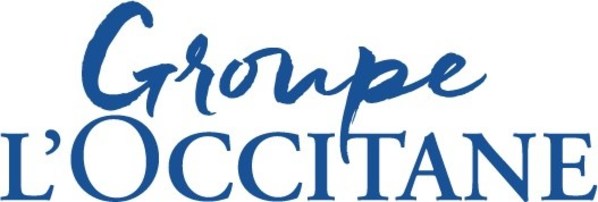 |
GENEVA and Marseille, France, Sept. 6, 2021 /PRNewswire/ — The L’OCCITANE Group has announced the guiding principles of its biodiversity strategy, the high point of its visit to the International Union for Conservation of Nature (IUCN) Congress in Marseille. As the fight against biodiversity loss reaches a turning point, the strategy moves the Group’s actions up a gear and gives it the resources to act in line with its vision for a ‘nature-positive’* world. As part of its contribution to this vision, the L’OCCITANE Group intends to develop a programme of actions that impacts the whole value chain, both within its own commercial ‘ecosystem’ and beyond.

L’OCCITANE Group announces its ‘nature-positive’ biodiversity strategy, the high point of its visit to the IUCN Congress in Marseille
The strategy takes a systemic approach, building on the experience the Group has gained from the many initiatives its brands have already implemented. It reinforces an existing long-term commitment by giving the Group a clear framework of behaviour covering the five key areas of biodiversity loss: land-/sea-use change, resource exploitation, pollution, invasive alien species and climate change.
This approach is inspired by the recommendations of the Science Based Targets Network (SBTN), which brings together more than 45 NGOs, business associations and specialist companies to promote a fair future that respects nature and limits greenhouse gas emissions, based on scientific objectives.
The strategy sets out how the L’OCCITANE Group plans to mitigate its impacts on nature and foster every opportunity to play a positive role.
- UNDERSTAND OUR IMPACT: In 2016, a biodiversity diagnosis revealed that the main impact of the L’OCCITANE en Provence brand’s activities on biodiversity relate to the sourcing of natural raw materials and packaging. By 2022, will broaden the scope of its assessment.
- AVOID: The Group pledges that all its plant-based ingredients will come from sources that work in biodiversity-positive ways by 2025.
- REDUCE: By 2025, L’OCCITANE en Provence, the brand that accounts for nearly 80% of the Group’s net sales and thus has the biggest impact on biodiversity, is committed to reducing the amount of plastic used for its packaging by 10%.
- RESTORE AND REGENERATE: Regenerative agricultural practices are made possible by promoting family farming and fair trade. Examples include the cultivation of shea butter in Burkina Faso and lavender, verbena and almond in the south of France. By 2025, the Group pledges to farm 100% of its key raw ingredients in line with sustainable agriculture principles based on agroecological, organic, sustainable, fair-trade certifications.
- TRANSFORM: Transformation at the systemic level requires collective action. To share best practices and advocate at the industry level, the Group is engaged in coalitions such as One Planet Business for Biodiversity (OP2B).
The strategy will be continuously enhanced and developed. “Biodiversity has always been a source of inspiration and innovation for us, and through collaboration and sharing our experiences, we will make it an even more integral part of our activities and decision-making,” says Adrien Geiger, Group Sustainability Officer and International Director of L’OCCITANE en Provence. This nature-positive ambition is combined with climate and human development goals. The L’OCCITANE Group is establishing its carbon roadmap to achieve net zero emissions by 2030 and it has set the objective of being B Corp certified by 2023.
* Harvey Locke, Johan Rockström et al, ‘A Nature-Positive World: The Global Goal for Nature’, April 2021.
Contact: groupcommunication@loccitane.com
